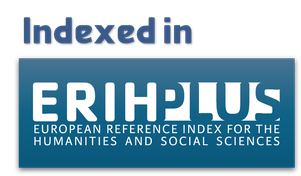How Speaking a Second Language Affects the Way You Think; The role of inhibition in language, thought, and emotion
DOI:
https://doi.org/10.63939/AJTS.9vtkyv75Keywords:
Bilingualism, Inhibition, Second-Language, EmotionAbstract
It is rare when a bilingual person speaks two languages with native-like fluency. Most still have a dominant language.
A study found that people shift from intuitive to rational thinking when they use their second language.
Brain imaging research shows that the prefrontal cortex is activated both in second-language use and in rational thought.
Downloads
Downloads
Published
Issue
Section
License

This work is licensed under a Creative Commons Attribution-NonCommercial 4.0 International License.
As an open-access the journal follows the CC BY-NC 4.0 Attribution-NonCommercial 4.0 International which states that:
- you are free to:
- Share— copy and redistribute the material in any medium or format.
- Adapt— remix, transform, and build upon the material.
- Under the following terms:
- Attribution— You must give appropriate credit, provide a link to the license, and indicate if changes were made. You may do so in any reasonable manner, but not in any way that suggests the licensor endorses you or your use.
- NonCommercial — You may not use the material for commercial purposes.
- No additional restrictions — You may not apply legal terms or technological measures that legally restrict others from doing anything the license permits.












